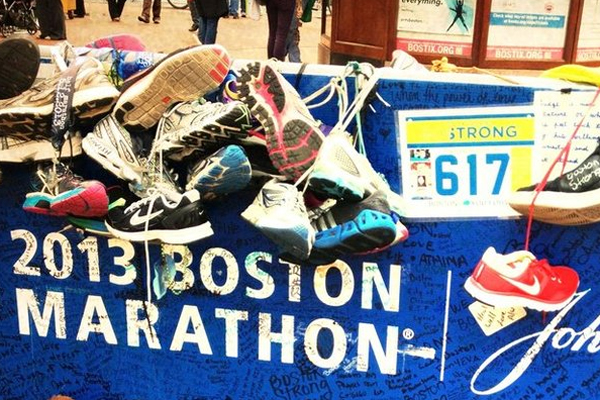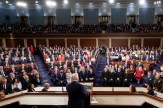Reflections on Marathon bombing, six months later

Determination and resilience. Sleepless nights. Acts of courage.
Our Marathon: The Boston Bombing Digital Archive has catalogued more than 3,000 stories from those affected by the tragic events on April 15 and the days that followed, bringing together these experiences in a remarkable collection of pictures, videos, oral histories, social media, and other materials. Northeastern University’s NULab for Maps, Texts, and Networks created the web-based, crowd-sourced archive as a long-term memorial to those affected by the bombings and to the city of Boston.
On Tuesday, exactly six months after the tragic events, Northeastern will host a special exhibit encouraging visitors to add their stories and reflections to the massive digital archive.
The exhibit will be held from 1-8 p.m. on the first floor of Snell Library, where Our Marathon team members will help visitors share their stories on the digital archive. The event is free and open to the public, and will include large digital screens featuring collections from the archive as well as several physical artifacts donated by the city’s archives and the Boston Medical Center. Visitors will be able to use laptops to explore the entire digital archive.
Our Marathon has collected more than 3,000 items since its launch in May. Examples include more than 200 first-person accounts submitted by The Boston Globe; a variety of Internet memes and graphics; photos from the #onerun; and a collection of images submitted by a Northeastern student taken before, during, and after the bombings. People can also share their stories directly through the website by submitting written accounts, photos, videos, text messages, and other media.
“Stories have power,” said Our Marathon’s chief project manager Ryan Cordell, an assistant professor of English and digital humanities expert in the College of Social Sciences and Humanities. “Communities cohere around their shared stories, and we believe that stories can help people heal.”
The Marathon bombings claimed three lives and injured more than 260, while MIT police officer Sean Collier was fatally shot days later at the start of a dramatic chase for the two suspected bombers.
On Monday night, WCVB-TV Ch. 5 aired a special program in which survivors and first responders shared their memories from Marathon Monday and how their lives have since been affected. Many shared their experiences of perseverance, trials, and triumphs, and in one amazing moment a survivor met for the first time the first responders who saved her life.
Northeastern hosted the event, which was taped on Sept. 19 and attended by more than 150 people, including 25 survivors as well as their family and friends.
The Ch. 5 program will become part of the Our Marathon archive along with news material submitted by the station. In addition to Ch. 5, Our Marathon has partnered with WBUR, The Boston Globe’s Globe Lab, and institutions such as The Digital Public Library of America and The Internet Archive.
The Our Marathon project began to take shape about a week after the bombings as English professor and NULab co-director Elizabeth Maddock Dillon listened as her graduate students shared their unique connections to the attack. Struck by how each student had his or her own story to tell, Dillon emailed her colleagues at the NULab with her observation, sparking a conversation about ways to collect all these stories.
Since then, Our Marathon has held public events, collected stories, and formed key partnerships in order to build the archive. Organizers hope the project will serve as a long-term archive for future generations to gain a more complete understanding of the Marathon bombing and the events that followed through personal stories and reflections.
“History often misses smaller stories, but Our Marathon will feature them,” Cordell said. “We believe that smaller stories when collected are the big story, the most important and true account of events.”





